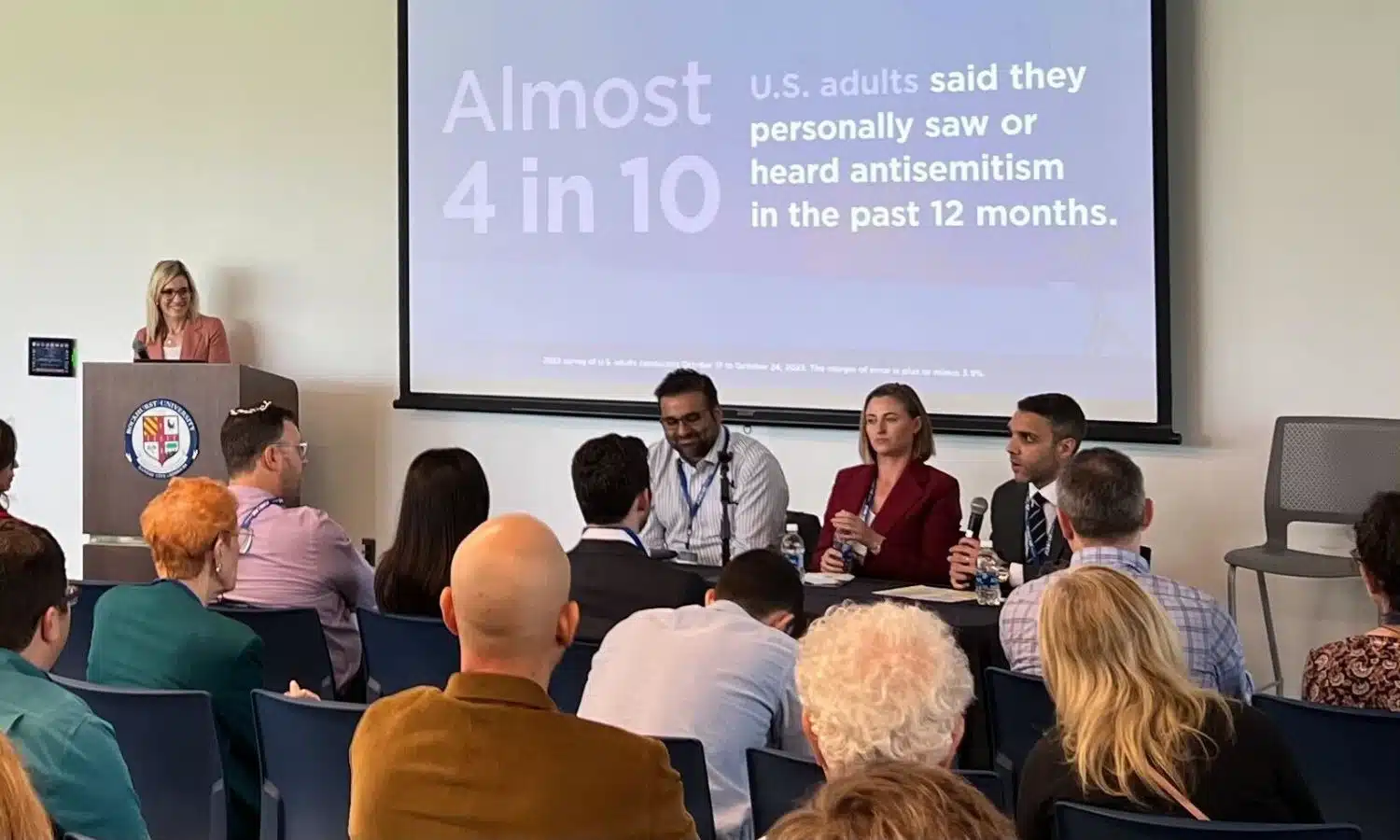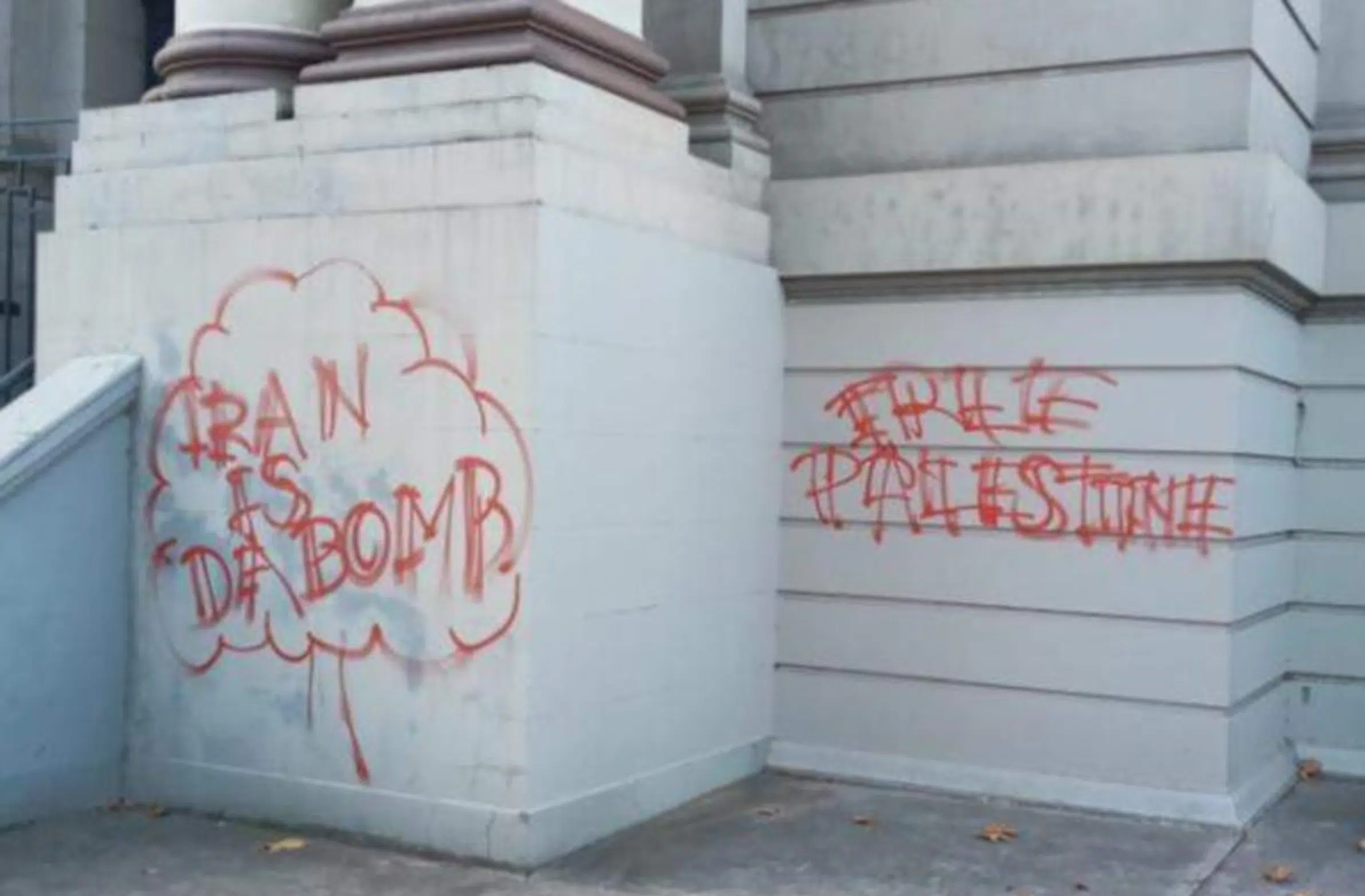The Combat Antisemitism Movement (CAM) was honored to participate on Tuesday in the “Driving out Darkness in the Heartland: 2024 Regional Summit on Combating Antisemitism” at Rockhurst University in Kansas City, Missouri.
CAM was officially represented at the gathering — organized by JCRB|AJC Kansas City — by Chief of Staff Arthur Maserjian, with North American Project Manager Jenn Block also in attendance.
Maserjian participated in a panel titled “From Memes to Manifestos: Antisemitism in the Digital Age.”
Watch a full recording of the panel HERE:
The discussion was moderated by American Jewish Committee U.S. Director of Combating Antisemitism Holly Huffnagle, and the other panelists were Associate Director of the Anti-Defamation League’s Center for Technology and Society Jyot Singh and Head of Threat Analysis and Prevention U.S. at the Institute for Strategic Dialogue Katherine Keneally.
“What happens online does not stay online,” Maserjian warned in his remarks. “Hate online is hate in real life. Hate in real life is disseminated online.”
He added, “A year ago we described this as a horseshoe effect, but since October 7th it’s really a circle with with a convergence of antisemitic ideologies across the spectrum, with white supremacists, Black Hebrew Israelites, Islamists, and now far-left anti-Zionists mobilizing and working together on the only cause that unites them — a hatred of Jews.”
Maserjian recalled how rapper Kanye “Ye” West’s social media following doubled after he began posting antisemitic content several years ago, noting, “So even the celebrity influencers are incentivized to promote this divisive and hateful content.”
“The volume of hateful discourse on social media is nearly impossible to restrict altogether,” Maserjian said. “But the time has come for social media platforms to responsibly and actively monitor threatening rhetoric against minority communities and individuals.”
“Platforms should hire dedicated personnel to monitor threats, not just terms of service violations, and establish appropriate mechanisms to regularly share this information with law enforcement,” he added.
Maserjian also called on law enforcement at the state and federal levels to “dedicate internal resources to specifically assess potential threats and emerging trends in hateful conduct on social media platforms, proactively.”
He went on to highlight the need for a non-partisan approach to fighting antisemitism, saying, “In this moment, we can no longer afford to call out antisemitism only when politically convenient. We all have our own biases, but we can’t have ‘Oh well, it’s worse on the right’ or ‘It’s worse on the left’ … It’s gone mainstream.”
“It’s really important that we don’t politicize the issue anymore, because the Jewish community suffers,” Maserjian emphasized.
Keneally pointed out, “It’s not just the Kanye Wests of the world. It’s also some of our legislators and Congress people. Call out the hate.”
Singh said, “There are two big things you can do when you see antisemitism online. One, report it. Two, keep at it. Be persistent, be vocal, and be loud.”








